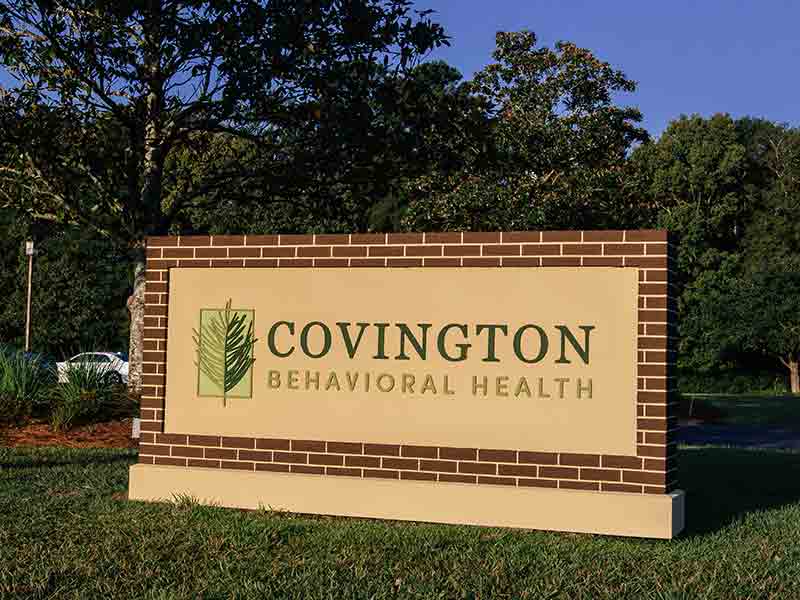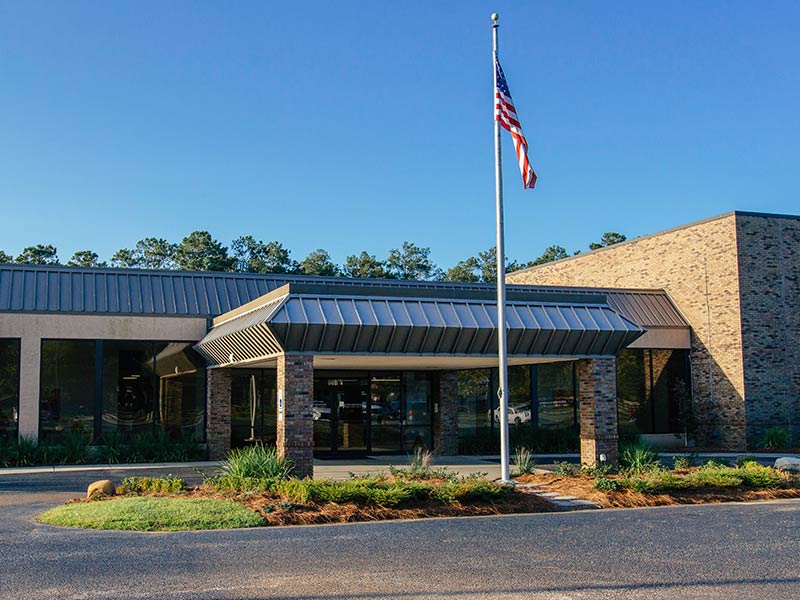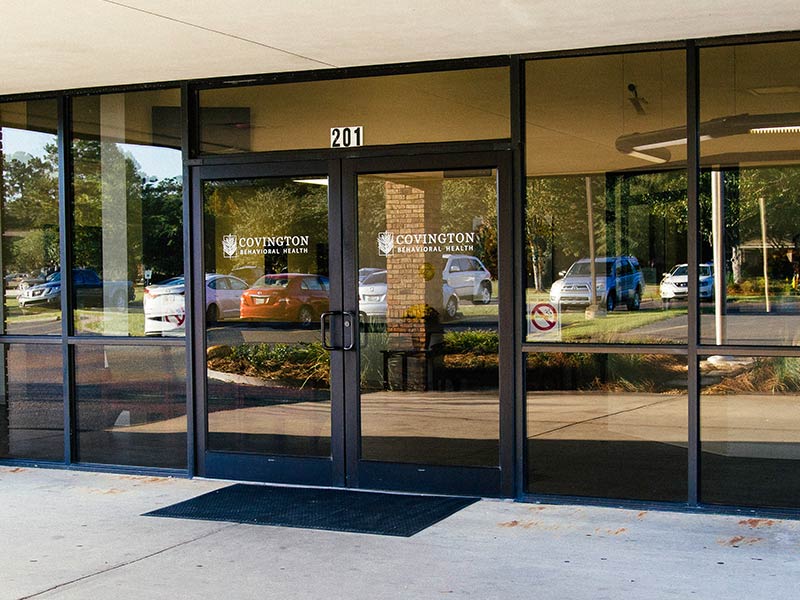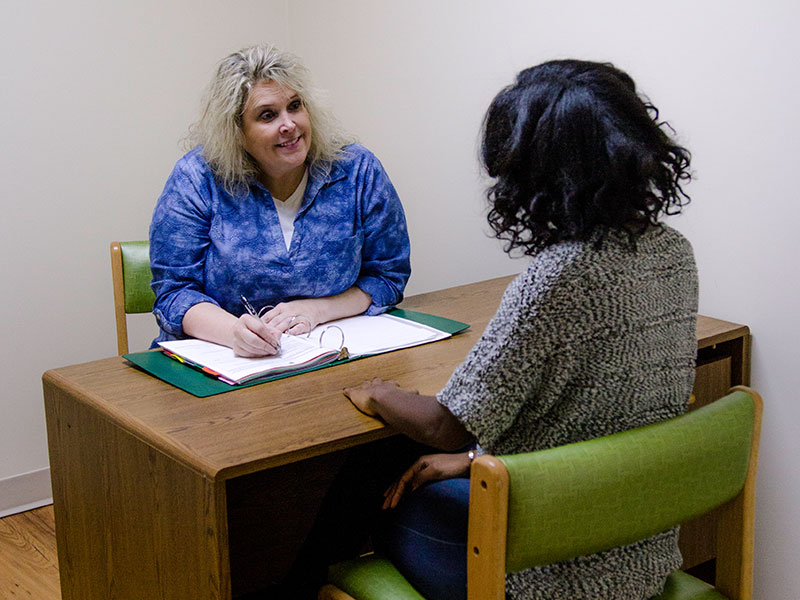At Covington Behavioral Health, we believe education is an important first step in the effort to heal from schizophrenia. Understanding the signs, symptoms, and effects of schizophrenia can help you get the right type and level of care for yourself or a loved one.
Understanding Schizophrenia
Learn about schizophrenia
Schizophrenia is a potentially debilitating type of mental illness that is marked by disorganized thinking, delusions, hallucinations, disorganized or catatonic behavior, and negative symptoms such as diminished expression. Schizophrenia greatly impedes everyday activity and affects actions, thoughts, and awareness. It manifests itself in a variety of ways that make the individual unable to differentiate reality from non-reality. Episodes of derealization (feelings that experiences are not real) and depersonalization (feeling “out of body” or disconnected from self) may further complicate attempts to maintain daily living. Often, the intense experiences of the schizophrenic individual lead to paranoia, unusual affect, and anxiety.
Schizophrenia is usually first diagnosed in early adulthood, but it can also be diagnosed after age 40 or in childhood. When individuals first experience the powerful hallucinations and delusions of schizophrenia, it can be alarming for both the individual and that person’s family. Schizophrenia is not a disorder than can just be “willed away”. Because schizophrenia is a complex disorder, the best option for wellness is short-term inpatient treatment. Because inpatient treatment can offer a comprehensive wellness team, medication management, and support for individuals and families all in one place, it is a good place to return to wellness and functional living. Fortunately, new treatments in schizophrenia allow many individuals to live normal lives.
Statistics
Schizophrenia statistics
The American Psychological Association (APA) notes that schizophrenia affects women in slightly lower rates than men. Furthermore, women are more likely than men to see an onset of schizophrenia at a later age. Experts estimate that between 0.3% and 0.7% of the U.S. population will develop schizophrenia. Sadly, an estimated 20% of all individuals with schizophrenia attempt suicide at some point, and about 6% kill themselves.
Causes and Risk Factors
Causes and risk factors for schizophrenia
Research suggests that the risk of schizophrenia is related to genetic and environmental factors.
Genetic: It is widely accepted that schizophrenia may have some heritability. It has been hypothesized that there are “risk alleles” or parts of each person’s chromosomal makeup that make that individual more susceptible to schizophrenia. However, the same alleles that contribute to schizophrenia also contribute to a number of other mental health disorders.
Environmental: While genetics play a large documented role in this disorder, there are some environmental factors that increase an individual’s risk of experiencing schizophrenia. While these factors require further study, there have been some links discovered between season of birth or childhood residence (individuals who grew up in urban areas are more likely to have schizophrenia) and this disorder. Also, birth complications and advanced age of an individual’s father have been linked to schizophrenia, although this link needs further exploration.
Risk Factors:
- Children with older fathers are more susceptible
- Family history of mental illness
- Difficult birth, especially if the individual experienced lack of oxygen during birth
- Malnutrition during fetal development
- Stress, infections, or maternal diabetes in the individual’s mother during gestation
- Past diagnoses of paranoid personality disorder, schizotypal personality disorder
Signs and Symptoms
Signs and symptoms of schizophrenia
Schizophrenia, like many other mental health disorders, may appear slightly different in each individual person. Schizophrenia symptoms are grouped into three categories that include the following:
Positive symptoms: Active experiences and behaviors are described as “positive symptoms.” These symptoms may include the following:
- Disorganized behaviors
- Disorganized speech
- Hallucinations (smells, sounds, sights, objects or people are perceived that are not really there)
- Delusions (Unrealistic beliefs that a person believes to be true even when evidence shows otherwise)
Negative symptoms: Diminished actions or behaviors are termed “negative symptoms.” These symptoms include the following:
- Inability to experience pleasure
- Muted emotions– not showing emotions
- Neglect of personal hygiene
- Immobile (catatonic) motor movements
- Disregard of daily activities, hobbies or behaviors
- Lack of speech articulation, or possible lack of speech
Cognitive symptoms: These symptoms, which may be more subtle than positive or negative symptoms, include the following:
- Difficulty or inability to concentrate
- Difficulty making decisions or plan
- Inability to remember items, tasks or activities
- Memory problems, forgetfulness
Effects
Effects of schizophrenia
Without treatment, schizophrenia will lead to unfortunate results. Because of the severity of this disorder, untreated schizophrenia may lead to some of the following effects:
- Anxiety and overwhelming fear
- Inability to maintain a job or obtain work
- Substance use and addiction
- Homelessness
- Dangerous or self-harming behaviors
- Suicide attempts or thoughts of suicide
- Financial difficulties or inability to manage finances
- Isolation from others
- Neglect of medical or dental care
- Neglect of family or pets
- Relationship conflict and difficulty in relationships
- Paranoia that consumes daily living
Co-Occurring Disorders
Schizophrenia and co-occurring disorders
People who have developed schizophrenia may also be at increased risk for the following mental health disorders:
- Paranoid personality disorder
- Anxiety disorders
- Substance use disorder
- Schizotypal personality disorder
- Obsessive-compulsive disorder















